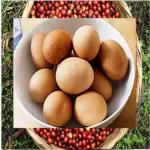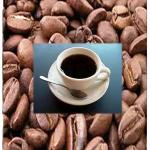Thin or fat at will
1-Understand the role of food.
(a) What you need to know.
When we eat, what matters to the body is what we bring to it in nutrients. The body is like a car that runs and needs not only fuel (gasoline, diesel, etc.) to run, but many other oils (motor oil, steering oil, bridge oil, grease, etc.) without which the car can't drive properly. Nutrients are the essential components of food. These are proteins, fats, carbohydrates, drinking water, mineral water, dietary fiber, vitamins, mineral salts and trace elements. We know much more about proteins (meat, fish, dairy products, eggs, beans, soy, nuts, hazelnuts, legumes, etc. ), carbohydrates (sugars, honey, sweet drinks, pastries, rice, pasta, flour, potatoes, bananas, manioc, yam, starch, etc. ), lipids (oils, butter, fats, etc. ) and some mineral salts and vitamins. But we hardly know the trace elements that are Catalyst elements, very valuable which exist in very small quantities in certain foods. The body needs of all this assembly for its proper functioning. A deficiency or imbalance over a long period of one element of this set always has serious consequences for health. There is a saying that, man is what he eats or man is like he eats. I will say: tell me how you eat and i'll tell you what you'll suffer in a few years.
(b) Carbohydrates and weight gain
The energy supply to our body comes mainly from carbohydrates and fats. The carbohydrates we eat come in various forms: fast sugars or simple sugars (white and red sugar, fructose or fruit and vegetable sugar, honey, lactose, etc. ) and complex sugars or slow sugars (bread, rice, biscottes, flakes, flour, potatoes, yams, manioc, bananas, semolina, potatoes, i.e. cereals and starches). Once ingested, carbohydrates are transformed into glucose under the action of digestive juices. Glucose passes into the blood under the action of insulin secreted by the pancreas. It is then used directly as fuel by the body or stored as glycogen in the liver and muscles. When the meal is delayed or exercise is prolonged, the same glycogen is converted to glucose and used again as fuel under the action of insulin secreted by the pancreas. Hence the need to eat at regular times without overeating and without nibbling so as not to disturb the system. Remember that everything that is not used is transformed into reserve fat, hence a body overload. We think we're gaining weight when in fact we're gaining fat, we're gaining waste. Fats provide the body with twice as many calories as carbohydrates. The digestion of lipids is more complex and places a lot of stress on the liver. Since lipids are highly energetic, strict control of their consumption is necessary in order to avoid body overload.
(c) Lipids and weight gain.
Lipids are the fat of living things and consist of saturated fatty acids and unsaturated fatty acids. Saturated fatty acids are of animal origin (butter, cooked meats, beef and mutton, etc. ) and the unsaturated fatty acids are of vegetable origin (vegetable oil, dried fruits, nuts, hazelnuts, almonds, etc. ). Fats provide twice as much energy to the body as carbohydrates and when you eat too much fat (snacks, pastries, food, cold cuts, etc. ) it is normal that you are fat and very obese. No diet or herbal tea can correct your bad life. It's up to you to make efforts to keep your weight up and down. The herbal teas will cause you to lose pounds and a lot of pounds which unfortunately will be quickly recovered and very quickly if you do not change your behavior towards the food. The people you see holding the line and admire do a lot of work for that. This is not to discourage you and I am telling you the truth and nothing but the truth. Eating graciously and wanting to lose weight at the same time are incompatible. One cannot want one thing and the opposite at the same time. Let no one deceive you. Weight gain is a problem of entry and exit. When the inputs exceed the outputs without compensation, the body converts the excess into fat and your weight increases. It's a very simple and easy-to-understand principle. You can't eat a lot, you can eat a lot, you can sleep a lot, you can eat sweets, you can do little exercise without getting fat. It's absurd. Whatever your constitution, you're going to put on pounds. Maybe without become obese if you are not prone to obesity. But those who are predisposed to it must be very careful about what they eat. So think before you decide to lose unnecessary pounds to better manage so you don't take them again. The rule is "eat right, eat light, eat balanced, eat healthy and eat better". That way everyone will be satisfied. Thank you in advance for your understanding.
(d) Proteins, water, dietary fiber, vitamins, salts and trace elements.
Proteins are the building blocks of our bodies. These are low-energy nutrients that actively participate in cell growth and renewal. Water, vitamins, mineral salts and trace elements are solvents, essential catalysts, transporters, stimulants and moderators that contribute to the good functioning of the body at all levels. They provide almost no energy but are used in the composition of several body fluids (blood, hormones, sperm, enzymes, saliva, secretions, gastric juices, etc. ). Dietary fiber provides no energy but clean the body properly. That's the role Mother Nature gave them. Every time your diet is low in dietary fiber for a long time, you will be constipated. From constipation to the hemorrhoid only a step away. I'll take a small step. Laxatives won't be able to do anything for you in the long run. In addition, abuse of laxatives can lead to a colon ulcer because the colon is irritated. Constipation is not the disease. You need to rethink your way of life. The way you eat is the cause of your constipation. Watch your liver. You understand that Mother Nature has everything planned for us, provided that our diet is well balanced. Men should be even more wary of hemorrhoids that, once properly established, cause sexual weakness and ultimately impotence. But a diet rich in fiber, copper, zinc, and vitamins C and E will tone them up. Otherwise, consult the center.
e) The secrecy of the schemes to lose weight or to sneak in.
Now that you have understood the role of each food, you can choose to grow or lose weight at will. You can increase your weight or reduce it on your own by playing the game between energetic foods and cleaner foods while taking into account your daily calorie need. But don't confuse getting fat with muscle. Getting muscle or fat waste. To get bigger or to lose weight you must not neglect sports activities and especially walking which is the king sport. Remember that energy foods are carbohydrates and fats. Cleaning foods are well-ripened fruits and vegetables because of their richness in vitamins, minerals, trace elements, and especially dietary fiber ( cleaners par excellence ). Raw vegetables are low in energy, so to lose weight you need a diet (without nibbling) very low in calories and very rich in raw vegetables. The opposite will make you gain pounds. I think I'll be fairer by giving you after herbal teas that purify the body, cut the hunger and also herbal teas that excite the appetite. It is true that many want to lose pounds, especially women but there are also a few people who want to gain a few pounds. It's up to you to know what's good for you.
We don't throw ourselves into the diet. You have to figure out how many pounds to lose and why, because you need to be motivated. Know its constitution, its current weight, its strengths and weaknesses in order Use strengths to overcome weaknesses. Once the diet a started, you need to go all the way. Be brave, stand back with nothing and once the goal has been achieved, manage the rest with the same determination so as not to take back the lost pounds.
(f) Some factors that contribute to weight gain or loss.
- What really makes you fat is overeating, snacking, baked goods, lack of exercise, alcohol and its derivatives because of their calorie content.
- Sport improves cardiovascular health, increases overall energy expenditure, strengthens muscle mass, promotes the loss of fat mass (used as exercise fuel), lowers blood pressure, blood glucose, bad cholesterol and promotes good cholesterol. So sport is useful in all cases.
- Menopause and maternity promote normal weight gain in women. They have no complaints
- Pills don't really do grow with a few exceptions.
- Stress promotes snacking and can increase your weight.
- Repeated fasting is good if you want to lose weight.
- Stopping sport promotes weight gain in high-performance athletes.
- Great beer drinkers or sweets will always be obese with a large belly due to the expansion of the stomach by carbon dioxide.
2-Calculate the number of calories per day needed
a) How much calories do you require on a daily basis?
Know the amount of energy or calories that our body requires to consume every day is essential. As we put gasoline in our car to drive, or our strength to ride a bicycle, we use energy daily for various activities: moving, get up, wash, walk, work, eat, read, write, type, running, thinking, taking an object, talking, breathing, digesting, living, sleeping, etc. Only a corpse does not need energy but we are not very aware of it.
The amount of energy a person requires each day varies depending on their gender, height, age, weight, level of physical activity, and level of intellectual and mental activity. For example, the number of calories per day for a farmer (who plows his field) every day for 5 hours) is obviously more important than the number of calories per day for a woman like a 1m65 secretary (sedentary working in front of a computer). Also mental exertion or intellectual for a student who is on revision, the amount of calories consumed is almost the same as the amount of effort physical.
An average man demands about 2,500 calories every day to maintain body weight, and an average woman has about 2,000 calluses daily (except during pregnancy or breastfeeding, when her body may have higher energy requirements). Normally, a person's average caloric requirements vary depending on their daily physical activities
(b) Normal caloric requirements.
—In humans:
If it is active less than 30 minutes daily: it requires about 2,100 kilocalories (Cal),
If it is active for 30 to 60 minutes daily: about 2,500 to 2,700 Cal,
If it is active more than 60 minutes daily: about 3,000 to 3,500 Cal (the longer and more intense the activity, the more caloric expenditure it will be).
—In women:
If it is active less than 30 minutes daily: it requires approximately 1 800 Cal,
If it is active for 30 to 60 minutes daily: approximately 2 000 to 2 200 Cal,
If active for more than 60 minutes daily: 2400 to 2800 Cal
If pregnant or breastfeeding: 1,800 to 2,500 Cal.
NB: 1 calorie = 1 kilocalorie = 1000 calories. ( there is high calorie and low calorie). But in dietetics we sometimes confuse the three.
c) Important note.
Other factors can also affect the amount of calories you burn on a daily basis, such as: your state of health or illness, certain hormones (including thyroid hormones), certain drugs (such as glucocorticoids used to treat inflammation), mood swings, the temperature of the environment you are in, etc. For example, in cold weather, the body needs more calories to stay at the normal temperature of 37°5 and in a state of sleep or illness the body spends little calories. The energy we use to power our bodies every day comes from what we eat and drink. Knowing our daily calorie demand allows us to better adapt our diet to better control our weight. For example, a person who requires 2000 kilocalories (Cal) per day therefore has very little interest in consuming 2500 kilocalories (i.e. 500 Cal in excess of his demands, these 500 Cal will be stored in his fat if this person does not do additional physical exercise to burn them). If, on the other hand, the same person consumes only 1,500 Cal each day, he eats 500 Cal less per day than his daily caloric requirements, he should lose weight (and this even faster if he exercises next door. But, we advise you not to go below a daily calorie intake of 1,200 unless you follow a weight loss program supervised medically or after consulting and obtaining the agreement of your doctor. Athletes may require higher calorie intake to maintain their body weight.Know that a "sedentary" lifestyle is equivalent to zero kilometers of walking per day, "slightly active" is equivalent to less than 6 kilometers of walking per day (up to 9,400 steps), "moderately active" is equivalent to between 6.1 and 16 km of walking per day (between 9,400 and 23,500 steps), "very active" is equivalent to 16.1 to 20 km of walking per day (between 23,500 and 300 steps) 0,000 steps per day), "extremely active" means walking more than 20 km each day (more than 30,000 steps)
3- Proposals for diets for sneak weight loss.
a)-Diet for sneak weight loss.
Only one balanced meal per day, preferably at breakfast or lunch.
- 30 minutes before the meal a seasonal fruit.
- Drink a glass of water in the middle of the meal and go up to 2 liters of water a day away from meals.
- Main meal very low fat and without dessert. Eat local without any complications.
— Follow the table below for your composition without exceeding 1500 calories per day.
Protides of choice
Fibers
Carbohydrates
Lipids
Lean meat
Vegetables
potato
Little or no
Lean fish
Gombo
Igname or Taro
Grilled meats
Moringa leaf sauce
Banana or banana fufu
Few or no almonds
Grilled fish
Crudités
Yam fufu
Few or no nuts
Hard-boiled eggs
African leaf sauce
Potatoes
Little or no hazelnuts
Cheese
Onions, garlic, lemons, pineapples, Seasonal fruits, etc
A little rice
Lemon cure
some cassava or derivatives.
Grapefruit cure
Akassa or fermented masterflour.
Cure of orange
Full bread
-Red light: snack, pastries, cold cuts, cakes, sweets, white sugar and alcohol in all its forms because of their calorie content and their tendency to excite the appetite when you need to reduce them.
- Green light: Drink unsweetened water with ripe lemon, all day long and walk 45 minutes every day.
NB: The body will draw in its fat reserves, everything he needs. You have some stored enough. So don’t be afraid, hungry disappear very quickly. In case of strong temptations, a raw vegetable broth without oil is enough or a small pot of yogurt 0% fat. Walking every day God gives you, moving, gardening, tinkering, burning your calories. No panic, your efforts will be rewarded.
Remember that rice and cereals provide more calories than bread and bread provides more calories than tubers. Thus, in a diet, tubers (potato, taro, potato, yam and a few slices of toast) should be favored. Reduce or eliminate oils (about 900 calories per 100g), cold cuts (pork), egg yolks, fermented wine drinks and aperitifs (600 calories per 100g). Beware of oilseeds and dried fruits because of their calorie content, take little rice and little corn fufu.Natural fruit juices without white sugar are tolerated without abuse.
(b) - Detoxification regime.
This diet enables the body to rapidly clear its toxins and return to its basic balance. It is a good purification diet for everyone except children. This diet lasts three weeks.
(i)The first three days.
Wake up with an empty stomach and drink a full glass of water, either unmineralized or minimally mineralized.
Morning, noon and evening, a selection of well ripe fruits: orange, grapefruit, pineapple, apples, tomatoes. Take it moderately, as desired and not beyond. Nothing else but a little water, depending on the thirst, between these meals. Rest and sleep, as much as possible.
NB: The skinny and nervous will be enough for three days but the obese can go beyond that.
(ii) Fourth and subsequent days.
—Take the juice of a ripe lemon every day in half a liter of warm water.
—Breakfast: Fruits indicated for the previous days.
—Noon: Vegetable broth
Evening: Salad and raw vegetables. One or two non-floury cooked vegetables.
3i) Second week.
—Continue to take the morning lukewarm lemon water.
—Breakfast: Fruit as before.
—Noon: Green salad and raw vegetables with one or two dry patties or a slice of dried wood bread/
—Evening: Vegetable broth, two or three steamed vegetables. Vegetable salad.
NB: This diet provides enough cellulose to excite intestinal peritalism and avoid constipation. Do not use laxatives. Of course, if there is an organic obstruction (tumor for example), the problem is different.
4i)Third week.
— Continue to take the morning lemon water and fruit for breakfast.
—Noon: Green and raw salad and dry pancake or biscuit, or slice of whole bread, or potato, or potato or yam or banana or taro or foufou corn or rice with some vegetable oil and lean fish, not exceeding 1500 calories per day. Eat little, eat fair and eat balanced.
—Evening: A nitrogen dish (cheese, egg, lean meat or fish, beans, etc.). A dish containing two or three cooked green vegetables. A little raw salad.
NB: Moringa powder may be added to food. Skinny and nervous people can have a small jar of yogurt in the morning at about 8 a.m. or 9 a.m. (an hour after the lemon water). If they are not tolerant of fruits, they can replace them with green vegetable or carrot juices.
When hungry this third week, the body is rid of its toxins. But maintaining that well-being requires a healthy diet and a healthy lifestyle (free of tobacco, alcohol, and stress).
(c)-Quartile regime for losing pounds without suffering.
First week: for 7 days, you only take the 75% of your usual ration, a reduction of 25%.
Second week: For 7 days now, you only take the 50% of your pre-diet ration, i.e. a 50% reduction.
Third week: During the next 7 days, you take only the 25% of your ration before the diet, i.e. a reduction of 75%.
Fourth week and following week: you continue as during the third week until you get back the desired weight.
NB: You can accompany your diet with one of the herbal teas to lose weight. Once the goal is reached you need to check your diet so as not to regain the lost pounds.
Add a comment








